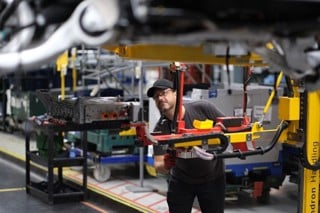In the years that I’ve been involved with the fleet industry, I’ve watched an erosion of professional fleet management occur.
Often, this is down to a lack of understanding by the fleet manager’s managers – as Geoffrey Bray made the point in a recent article in Fleet News, fleet can be handed to someone untrained and often in organisations where fleet is seen as an ‘admin function’ and one where costs ‘just happen’.
Fleet size and complexity aside, organisations which don’t see the value in a fleet manager, often haven’t invested in the fleet manager or taken the time to understand what they do; sometimes, of course, the fleet manager hasn’t visibly or sufficiently justified the value they add to their organisation.
The quoted lack of professionalism isn’t just limited to fleet managers (which perhaps stems, in a number of cases, from their employers), but it can also apply to the fleet industry – we all know that often an organisation is only as good as the person you deal with.
And that’s probably the point. It applies equally to fleet managers and to people in the fleet industry. It’s good that the BVRLA, ACFO and ICFM all do their part to raise the profile of professional fleet management and better equip the people on ‘both sides of the fence’.
Many organisations have become focussed on cost control and we have all seen, with some good foundation, procurement growing in importance as a function within organisations.
While, in more recent years, this wider involvement of procurement has done something to address some cost elements of operating a fleet, many of these savings are often front-end loaded cost savings and, as most of us know, the lease costs tender process and manufacturers negotiations can very quickly be undone both through ‘cost creep’ and by giving a vehicle to an employee.
This hasn’t helped the fleet manager and has supported the outsourcing trend.
But where outsourcing does take place, what we still don’t see enough of today is the Total Category Management approach (which was a fleet manager’s job 20 years ago) in a sufficiently joined up manner, although there are some good cases where operational fleet management and procurement work well together.
While an outsourcing organisation can bring certain efficiencies and benefits, the ‘wrong’ sort of outsourcing can often bring with it a different set of problems and a lack of cost transparency, especially where the ‘wrong’ sort of outsourcing supplier may have a vested interest in the leasing suppliers it recommends – we’re very much against that style of outsourcing, which could also be perceived as lacking in integrity from an ethical perspective.
Regrettably, we see too much of this within the market.
When outsourcing, without proper engagement from the organisation, much detail can be lost in translation and it’s the true uniqueness/understanding/politics of the organisation that really takes the time to grasp.
Working externally to a business can make that very difficult to achieve and, for this reason alone where there is no fleet manager, we often look at operating as implants within our customers’ locations so that we gain an accelerated understanding of our customers’ culture and are better placed to influence positive change.





















spade - 24/06/2013 14:10
Not sure why you ask for comment and then dont post them...............